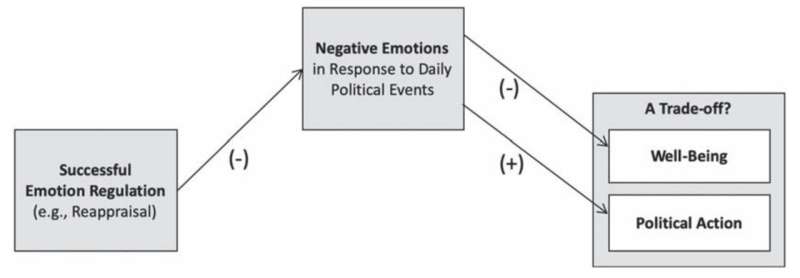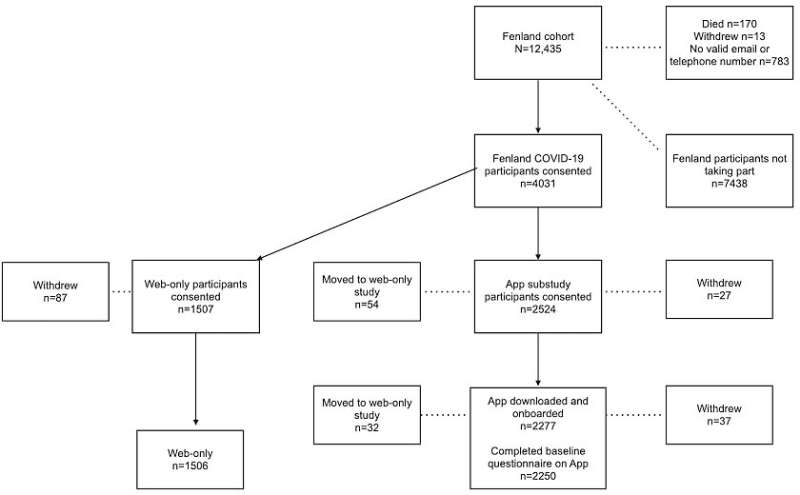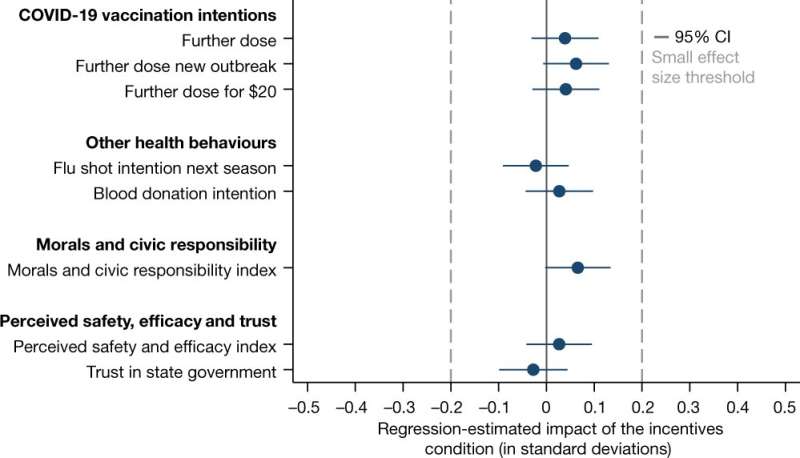Meditation and mindfulness may be as effective as medication for treating certain conditions

Many people look to diet trends or new exercise regimens—often with questionable benefit—to get a healthier start on the new year. But there is one strategy that's been shown time and again to boost both mood and health: meditation.
In late 2022, a high-profile study made a splash when it claimed that meditation may work as well as a common drug named Lexapro for the treatment of anxiety. Over the past couple of decades, similar evidence has emerged about mindfulness and meditation's broad array of health benefits, for purposes ranging from stress and pain reduction to depression treatments to boosting brain health and helping to manage excessive inflammation and long COVID-19.
Despite the mounting body of evidence showing the health benefits of meditation, it can be hard to weigh the science and to know how robust it is.
I am a neuroscientist studying the effects of stress and trauma on brain development in children and adolescents. I also study how mindfulness, meditation and exercise can positively affect brain development and mental health in youth.
I am very excited about how meditation can be used as a tool to provide powerful new insights into the ways the mind and brain work, and to fundamentally change a person's outlook on life. And as a mental health researcher, I see the promise of meditation as a low- or no-cost, evidence-based tool to improve health that can be relatively easily integrated into daily life.
Meditation requires some training, discipline and practice—which are not always easy to come by. But with some specific tools and strategies, it can be accessible to everyone.
What are mindfulness and meditation?
There are many different types of meditation, and mindfulness is one of the most common. Fundamentally, mindfulness is a mental state that, according to Jon Kabat-Zinn a renowned expert in mindfulness-based practices, involves "awareness that arises through paying attention, on purpose, in the present moment, non-judgmentally."
This means not ruminating about something that happened in the past or worrying about that to-do list. Being focused on the present, or living in the moment, has been shown to have a broad array of benefits, including elevating mood, reducing anxiety, lessening pain and potentially improving cognitive performance.
Mindfulness is a skill that can be practiced and cultivated over time. The goal is that, with repetition, the benefits of practicing mindfulness carry over into everyday life—when you aren't actively meditating. For example, if you learn that you aren't defined by an emotion that arises transiently, like anger, then it may be harder to stay angry for long.
The health benefits of meditation and other strategies aimed at stress reduction are thought to stem from increasing levels of overall mindfulness through practice. Elements of mindfulness are also present in practices like yoga, martial arts and dance that require focusing attention and discipline.
The vast body of evidence supporting the health benefits of meditation is too expansive to cover exhaustively. But the studies I reference below represent some of the top tier, or the highest-quality and most rigorous summaries of scientific data on the topic to date. Many of these include systematic reviews and meta-analyses, which synthesize many studies on a given topic.
Stress and mental health
Mindfulness-based programs have been shown to significantly reduce stress in a variety of populations, ranging from caregivers of people living with dementia to children during the COVID-19 pandemic.
Meta-analyses published during the pandemic show that mindfulness programs are effective for reducing symptoms of post-traumatic stress disorder, obsessive-compulsive disorder, attention-deficit/hyperactivity disorder and depression—including the particularly vulnerable time during pregnancy and the postnatal period.
Mindfulness-based programs also show promise as a treatment option for anxiety disorders, which are the most common mental disorders, affecting an estimated 301 million people globally. While effective treatments for anxiety exist, many patients do not have access to them because they lack insurance coverage or transportation to providers, for instance, or they may experience only limited relief.
It's important to note, however, that for those affected by mental or substance use disorders, mindfulness-based approaches should not replace first-line treatments like medicine and psychotherapy such as cognitive behavioral therapy. Mindfulness strategies should be seen as a supplement to these evidence-based treatments and a complement to healthy lifestyle interventions like physical activity and healthy eating.
How does meditation work? A look into the brain
Studies show that regular meditators experience better attention control and improved control of heart rate, breathing and autonomic nervous system functioning, which regulates involuntary responses in the body, such as blood pressure. Research also shows that people who meditate have lower levels of cortisol—a hormone involved in the stress response—than those who don't.
A recent systematic review of neuroimaging studies showed that focused attention meditation is associated with functional changes in several brain regions involved in cognitive control and emotion-related processing. The review also found that more experienced meditators had stronger activation of the brain regions involved in those cognitive and emotional processes, suggesting that the brain benefits improve with more practice.
A regular meditation practice may also stave off age-related thinning of the cerebral cortex, which may help to protect against age-related disease and cognitive impairment.
Limitations of meditation research
This research does have limits. These include a lack of a consistent definition for the types of programs used, and a lack of rigorously controlled studies. In gold-standard randomized controlled trials with medications, study participants don't know whether they are getting the active drug or a placebo.
In contrast, in trials of mindfulness-based interventions, participants know what condition they are assigned to and are not "blinded," so they may expect that some of the health benefits may happen to them. This creates a sense of expectancy, which can be a confounding variable in studies. Many meditation studies also don't frequently include a control group, which is needed to assess how it compares with other treatments.
Benefits and wider applications
Compared with medications, mindfulness-based programs may be more easily accessible and have fewer negative side effects. However, medication and psychotherapy—particularly cognitive behavioral therapy—work well for many, and a combination approach may be best. Mindfulness-based interventions are also cost-effective and have better health outcomes than usual care, particularly among high-risk patient populations—so there are economic benefits as well.
Researchers are studying ways to deliver mindfulness tools on a computer or smartphone app, or with virtual reality, which may be more effective than conventional in-person meditation training.
Importantly, mindfulness is not just for those with physical or mental health diagnoses. Anyone can use these strategies to reduce the risk of disease and to take advantage of the health benefits in everyday life, such as improved sleep and cognitive performance, elevated mood and lowered stress and anxiety.
Where to get started?
Many recreation centers, fitness studios and even universities offer in-person meditation classes. For those looking to see if meditation can help with the treatment of a physical or mental condition, there are over 600 clinical trials currently recruiting participants for various conditions, such as pain, cancer and depression.
If you want to try meditation from the comfort of your home, there are many free online videos on how to practice, including meditations for sleep, stress reduction, mindful eating and more. Several apps, such as Headspace, appear promising, with randomized controlled trials showing benefits for users.
The hardest part is, of course, getting started. However, if you set an alarm to practice every day, it will become a habit and may even translate into everyday life—which is the ultimate goal. For some, this may take some time and practice, and for others, this may start to happen pretty quickly. Even a single five-minute session can have positive health effects.
Provided by The Conversation
This article is republished from The Conversation under a Creative Commons license. Read the original article.![]()




